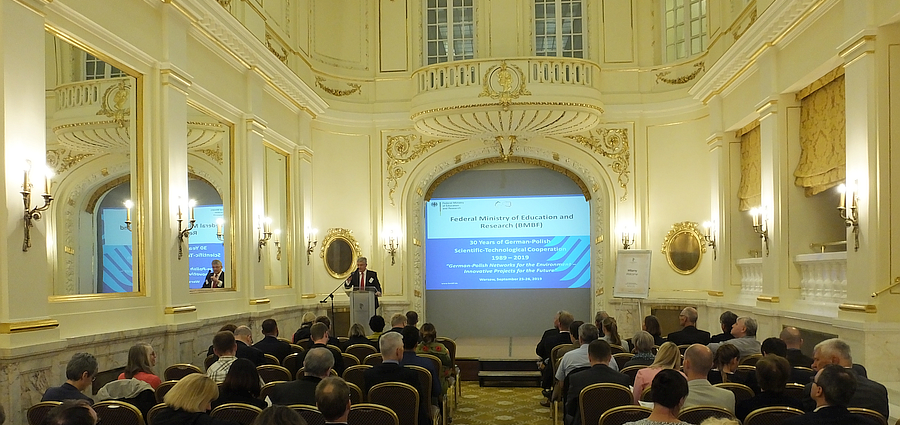Thirty years ago, Germany and Poland signed an 'Agreement on Scientific and Technological Cooperation'. Today, the two countries are looking back on three decades of intensive cooperation in research and development. The German Federal Ministry of Education and Research presents examples of German environment research at a 2-day event in Warsaw titled 'German Networks for the Environment – Innovative Projects for the Future'.

Opening of the event at the Polonia Palace Hotel in Warsaw by Stefan Kern, BMBF © DLR / Michael Lange
13 selected German universities and research institutes are holding interactive workshops on current topics in the fields of sustainability and environmental research as well as environmental technology with about 130 Polish colleagues.
The goal is to exchange technical knowledge and initiate new joint R&D projects. Topics include:
- Application of light-weight materials in e-mobility: New approaches for native or modified wood composites
- Integrative management of water resources and water related risks
- Neutral Lightweight Design – Progressive Approach for Sustainable Mobility
- New Trends for plasma-based innovation for the environment
- Land Management: Environmental governance mixes for sustainable peri-urbanisation
- Development of innovative technologies and materials based on iron hydroxide for removal of micropollutants from process water and sewage water.
With the 'Initiative for the Internationalisation of Germany as a Research Location', the BMBF supports measures that enhance the visibility of German research performance in important target countries, such as Poland, and promote cooperation.







